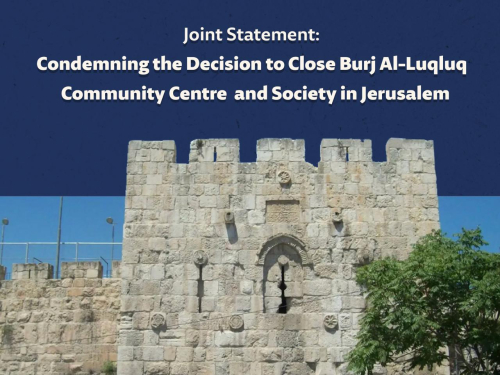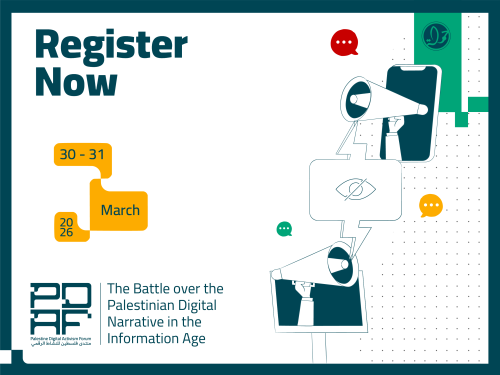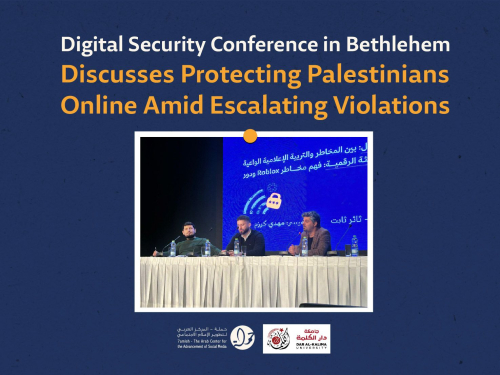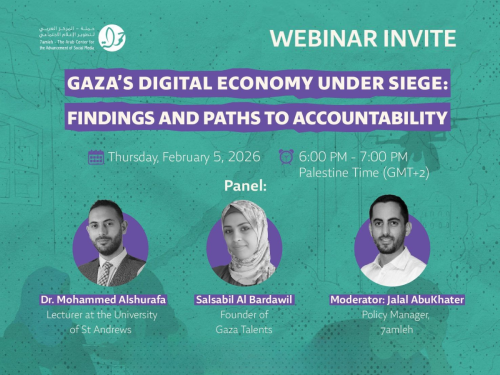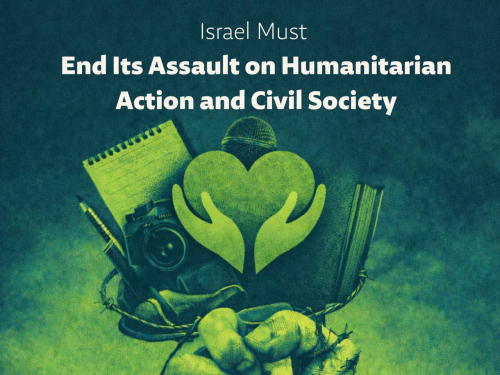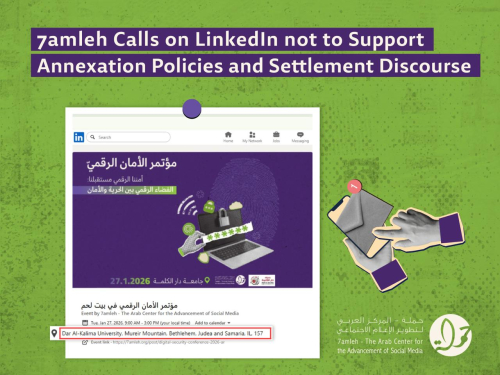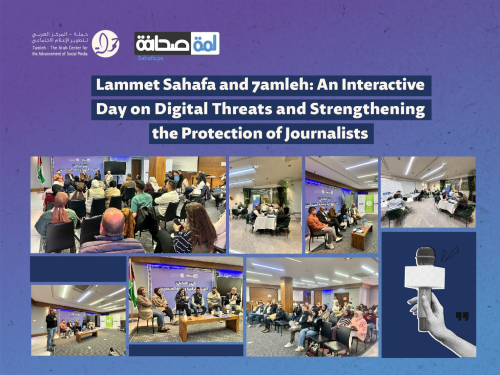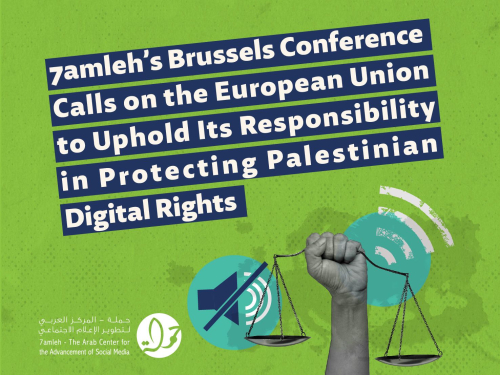When: Tuesday November 26, 2024 at 3:00pm - 4:20pm CET
Where: Palais des Nations, Geneva, Switzerland - Room XX
Registration Link (in person or virtual): https://indico.un.org/event/1005651/
Session is co-organized by 7amleh and the Working Group on business and human rights.
Interpretation in Arabic, Chinese, French, English, Spanish and Russian
(Version française ci-jointe)
(Versión en español adjunta)
Brief description of the session:
From user-facing platforms to humanitarian tools and services, the tech sector, and in particular social media, has an ever-increasing impact on individuals and groups in the most vulnerable situations, including people of African descent and communities of colour. The failure to address the dissemination of hatred that incites discrimination on social media seriously undermines the promise of business and human rights - that is to provide a framework to prevent and remedy abuses by businesses, including tech companies, of internationally recognized human rights. Where online content moderation systems fail to effectively detect such content, it can risk increasing incitement to violence, and can hinder the enjoyment of a variety of human rights online and offline, including the right to life, the right to physical integrity, the right to health, freedom from non-discrimination,. As the Secretary General of the United Nations indicated in the organization’s Strategy and Plan of Action on Hate Speech, hate speech is a menace to democratic values, social stability and peace.
Regardless of investment and resources, social media companies face specific challenges in their content moderation efforts to mitigate the spread of such harmful content. Electronic communication services, social media platforms and search engines provide an ideal environment for the delivery of a range of narratives, including those that may constitute incitement to discrimination and violence.. Individuals or groups systematically targeted by incitement to violence or discrimination, including racist attacks, are generally left without any effective means of defense, escape or self-protection, and often find themselves in situations of enhanced vulnerability. There is an increasing recognition of the deep impact of such systemic oppressions on mental health. As various studies have shown, harassment alone in comparatively limited environments can expose targeted individuals to extremely elevated and prolonged levels of anxiety, stress, social isolation and depression and significantly increases the risk of suicide, which may amount to psychological torture. Broadly speaking, incitement to discrimination and/or violence, including on the basis of race, not only affects targeted groups of people, but exercises greater influence on society at large, exacerbating divisions, fractures and strengthening polarization within society. The above-mentioned elements become more meaningful when we consider the rising importance that young people attach to cyberspace, and the latter's potential to influence their choices and values. In this context, this session will explore the potential of collaboration by different stakeholders to ensure a smart mix of measures that leads to a human rights-respecting approach in online content moderation for social media platforms.
Key objectives of the session:
Analyze current initiatives in the context of content moderation in relation to incitement to hatred and discrimination targeting people of African descent and ethnic and racial minorities on social media.
Identify good practices and challenges, including a smart mix of measures to protect and respect human rights in the context of social media content moderation.
Discuss concrete steps and actions that States, businesses, civil society organizations, and other stakeholders can and should take to implement the UNGPs for social media content moderation, and provide affected individuals and groups with effective access to remedy.
Key discussion questions:
What are the challenges for rights-respecting content moderation, especially in the Global South and in non-English speaking markets?
How can social media companies mitigate potential adverse human rights impacts through rights-respecting content moderation and human rights due diligence processes?
Speakers:
Joseph Kibugu
Regional Manager Africa and Middle East, BHRRC
Joe Kibugu is the Africa & Middle East Regional Manager at Business and Human Rights Resource Centre. He has vast experience supporting actors including civil society organisations, governments and businesses to put human rights at the centre of business operations and prevent abuse. He leads the team in supporting allies to advocate for rights-respecting use of natural resources and just energy transition, responsible use and deployment of digital technologies, protecting workers across global supply chains and protecting civic freedoms and human rights defenders. He has conducted field work in the East, Central and Southern Africa, including human rights impact assessment in mining, renewable energy, agribusiness and waste value sectors. He has been involved in the development of NAPs in Kenya and Uganda. He holds an LLM in International Human Rights from the University of Notre Dame and recently earned his doctorate on business and human rights from the University of the Witwatersrand.
Carmen Montserrat Rovalo Otero
Montserrat is a Mexican diplomat currently serving at the Permanent Mission of Mexico to the United Nations in Geneva, a position she has held since 2021. In this capacity, she has been Mexico’s lead negotiator on business and human rights issues at the Human Rights Council, including the drafting of a legally binding instrument in this field. Before joining the Mexican Foreign Service in 2019, Montserrat practiced as an environmental and human rights lawyer in Mexico City and lectured at the Faculty of Law of the National Autonomous University of Mexico (UNAM). She holds a Law degree from UNAM and a Master’s Degree in International Law from the Graduate Institute of International and Development Studies (IHEID).
Jalal AbuKhater
Advocacy Manager, 7amleh - The Arab Centre for the Advancement of Social Media
Tara Fischbach
Public Policy Manager for Community Engagement & Advocacy, Public Policy, Middle East & North Africa
Tara Fischbach is the Public Policy Manager for Community Engagement and Advocacy for the Middle East at Meta. She has worked in public policy, development and media with a strong background in research. She has experience working with government agencies, international NGOs, and community level organizations in research, communications, and development projects.
Moderators:
Ulises Quero
Business, Land & Environment Programme Manager at the International Service for Human Rights(ISHR)
Concept Note Tech & Racism Final FR
Concept Note Tech & Racism Final ESP
Related Articles
Subscribe to Our Email Alerts
And stay updated with our latest activities, news, and publications!

